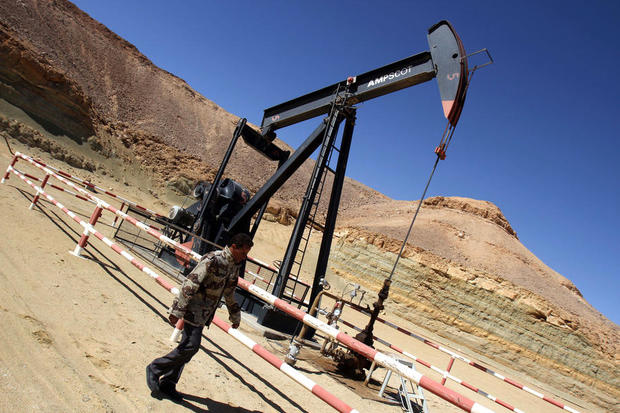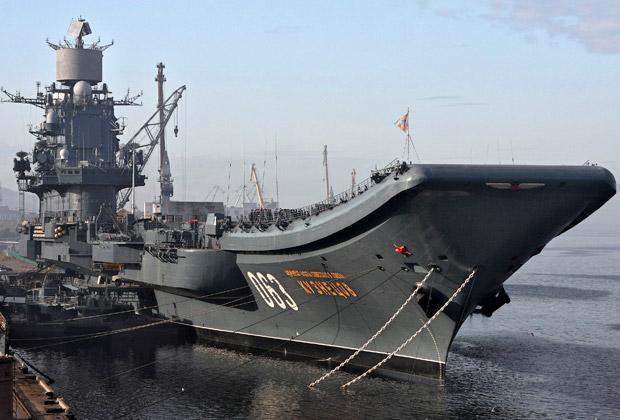Russia in Libya: whom the Kremlin relies on?
Africanist Kirill Babaev tells about military presence of Russia on the border with the former Jamahiriya of Gaddafi, the balance of power in the country and the peculiarities of the Arab diplomacy
In recent days in the press there have been more reports about the presence of Russian troops on the border with Libya torn by the civil war. One of the key figures, which Moscow relies on, according to some reports, is Marshal Khalifa Haftar. Who hides behind this contradictory person? What is happening in the country after the overthrow of Muammar Gaddafi? What is the probability of the presence of Russian specialists in the region? Expert in the countries of Africa, Kirill Babaev, answered there questions to Realnoe Vremya.
Three parts of Libya
Mr Babaev, tell us what is happening in Libya?
The civil war is Libya is going on. The most active phase was in 2014. They cannot put an end to it yet despite the fact that in December 2015 they signed the so-called Skhirat agreement. It would seem that the path to form a legitimate government for all Libyans was found, but that didn't happen. As you can see, a number of groupings are fighting for power. Today two groups of forces are predominating who share the country between themselves: National unity government, which is in Tripoli, supported by Western countries and looks legitimate in the eyes of the UN; and the Parliament sitting in the city of Tabruk in the east of the country, supported by the armed forces, led by Marshal Khalifa Haftar, and also controls quite large areas of the country — more than a half for today. Between these two forces, there are a large number of small and medium-sized groupings, many of them are tribal, many were created on the national basis by various Islamist organizations that exist in the country, including the Islamic State (ISIS, the organization banned in Russia – editor's note). Since the country is quite large and 90% is desert, it is highly unlikely that some of the units can control big or at least stable territory.
Is the struggle for oil and oases fields?
The struggle is for power in the country. Since 2011, the country is in limbo, in fact, in ruins. A legitimate government, which would control the entire country, no longer exists. Since the country has a huge number of weapons imported including from Western countries during the war between Gaddafi and the rebels in 2011-2012, it, of course, provides fertile ground for the creation and activity of a huge number of armed groups. Of course, they are fighting not only for power but also for economic preferences. After all, Libya is still one of the largest oil countries in the region. Moreover, it has extremely high-quality oil. Therefore, these billions of dollars do not give rest to anybody who is struggling today there. Of course, it affects the policy in the country as well as geopolitical events around Libya.

''After all, Libya is still one of the largest oil countries in the region. Moreover, it has extremely high-quality oil. Therefore, these billions of dollars do not give rest to anybody who is struggling today there.'' Photo: novostienergetiki.ru
Why did the Libyans overthrew Gaddafi?
It is part of the process that took place in the Middle East called the Arab Spring, the pursuit of democratisation, the effort to abandon dictatorial rule, which was typical of the Middle East. As you know, the process started in Tunisia and began to develop throughout the Middle East and across North Africa. What we saw first in Egypt, then in Libya, Syria, Yemen — they are all parts of a larger process of social and political transition in the Middle East.
Could you tell us more about the existing forces in the country?
It should be noted that Libya historically is not a single state. The state Libya itself has been formed recently and represents an artificial amalgamation of three regions: Cyrenaica, what represents the east of the country with its capital in Benghazi; the west headed by Tripoli — Tripolitania; the south populated by various peoples (the Tuareg, the Toubou and others) — Fezzan. Today we see a division by this principle. The historical part of Cyrenaica is controlled by Marshal Haftar. Tripolitania is controlled by the National unity government. Fezzan is controlled by almost no one and represents a conglomerate of tribes, and it is not a continuous area but mostly oases in the desert, every oasis has a controlling power.
What place does ISIS take among all of the parties?
ISIS has begun to penetrate there not so long ago, probably in 2014. Some time it controlled Sirte, a major sea port on the Mediterranean, located approximately in the middle of the coastline of Libya, just on the conditional border of Tripolitania and Cyrenaica. But a few months ago they were forced out, therefore, we cannot say that now the Islamic State has some stable positions. They have been handled, although they maintain contacts with various Islamist groups operating in the country.

''After Gaddafi was overthrown, Khalifa returned to Libya and gradually headed a number of the armed forces, which are now called the National army. In fact, today he controls a larger part of both oil fields and oil ports in the country. He can be considered as a promising figure in terms of military capabilities.'' Photo: inosmi.ru
Khalifa Haftar: a CIA agent or Kremlin's one?
Who is Khalifa Haftar and what is his place in politics?
Colonel Haftar is a famous person. He has been a career military man in the armed forces of Libya since the 60s. He studied in the Soviet Union, then served in Gaddafi's army, made a good career. During the war with Chad, he was captured, and his relationship with Gaddafi deteriorated. Therefore, he did not return from the captivity and in fact emigrated in the late 80s. He moved to the United States, which gave reason to believe that he managed to emigrate with the help of the CIA. He was considered as a CIA agent, but it is unknown for sure. We only know that he lived in the United States, he has an American passport, he is a citizen of the United States. It's a sort of interesting figure: a man is fluent in Russian, studied in the Soviet Union, has close ties to Russia; on the other hand, he has spent 20 years in the U.S., he is an American citizen, so, of course, he also has the contacts on the other side of the ocean as well. It makes Haftar a player who can balance between the two geopolitical forces. After Gaddafi was overthrown, Khalifa returned to Libya and gradually headed a number of the armed forces, which are now called the National army. In fact, today he controls a larger part of both oil fields and oil ports in the country. He can be considered as a promising figure in terms of military potential. It is clear that he has not so many soldiers — about a division, and weapons are not so many. But, of course, he usually comes to Russia.
The press reports that Moscow relies particularly on him. How do you – will our country succeed?
Apparently, they do rely on Haftar. In any case, his meetings in the Ministry of Foreign Affairs, the Ministry of Defense of Russia have become more frequent. In January, he visited our cruiser Admiral Kuznetsov in the Mediterranean Sea.
But officials deny the fact of his presence on the cruiser.
This information never appears officially through press releases. It's always some information from sources, publications, and rumours. Such information appeared. What is more, in several sources. It probably has a factual basis. It is clear that Haftar regularly comes to Moscow for a reason, and he regularly meets with Russian leaders. It is clear that, first of all, he needs weapons, he needs trainers, it needs modern military equipment. With the help of Russian support, he intends to consolidate his position and, perhaps, to unite Libya under his control.

''Apparently, they do rely on Haftar. In any case, his meetings in the Ministry of Foreign Affairs, the Ministry of Defense of Russia have become more frequent. In January, he visited our cruiser Admiral Kuznetsov in the Mediterranean Sea.'' Photo: lenta.ru
Is it true that he is focused on secularism and anti-Islamism?
It is. He is the most active opponent of all sorts of Islamists for today, even moderate ones.
You mean ''ikhwans'' (al-Ikhwān al-Muslimūn, the Muslim Brotherhood — the organization banned in Russia and Egypt – editor's note)?
Yes, in particular. It is the most secular of all who struggling for power in Libya. He is a career military man, educated in the traditions of the socialist state, so he is more clear, apparently, to the Russian leadership. I think there is a reason that they rely on him.
Russian traces in North Africa
What difficulties arise when working with the Libyans at different levels (diplomatic, business, etc.)?
There is such concept as the Middle Eastern mentality, there is the Arab national culture — all of this, of course, should be taken into account. Libya is a country where traditional Arab ethnic culture continues to be strong. However, clan system in politics, tribal affiliation, authority, reputation play a huge role. Too pragmatic relations that are accepted in Europe and in our country in general are not applicable. The idea is that in order to achieve some compromise between people they need not only to work out a political consensus between them but also to achieve mutual respect. Otherwise, it will not work, even if the parties will feel that they need that consensus. But without personal respect, it will never be achieved. This feature of mentality should be taken into account.
The press reported that in Libya, or close to it, there is the Russian special forces and military experts. Whether is it true that Russian specialists work there?
The information is not that the Russian experts are being in Libya, but not far from Libya on the territory of Egypt. I must say that the information appeared but then it was denied. But from my point of view, it seems logical because Egypt is one of the countries most actively supporting Marshal Haftar. Since a very close relationship of strategic partnership of Egypt with Russia is improving, I see nothing surprising in the fact that in Egypt there can be military experts, including those designed to monitor the situation in Libya. The question of whether an agreement between the Russian leadership, Egypt and Haftar has been reached or not. But I think there will be news on this subject, and we will know the truth soon.